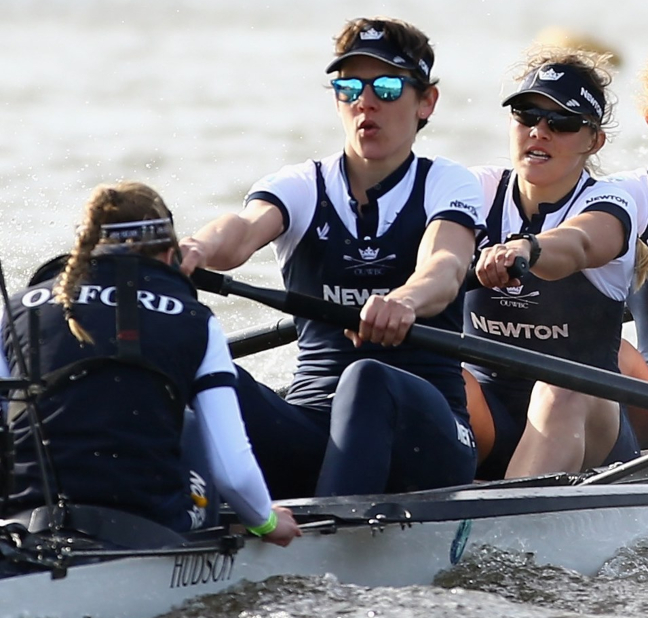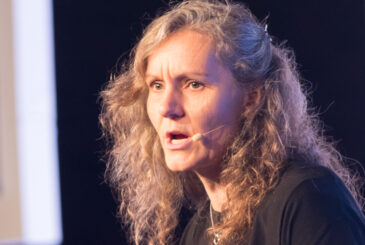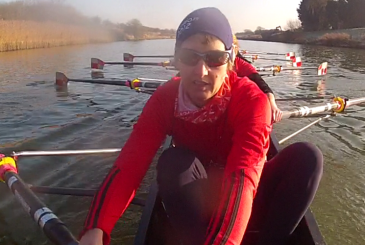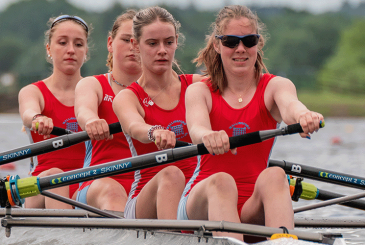What do some of the legends in our sport wish they’d known as a junior? Phoebe Horan from Junior Rowing News asks the question
In the careers of every sporting great, there are moments of total clarity, points they reflect back on as seminal to their development. Top-level athletes are fortunate to have a support network of advisors and coaches around them to guide and nurture their talent into something truly incredible and are privy to pieces of genuinely illuminating sporting wisdom.
The only regret they have?
They wish someone had told them earlier.
So, we asked ten of rowing’s greatest to tell us a piece of advice they wish they’d known when starting out in their careers.
1 – Sir Matthew Pinsent

Sir Matthew Pinsent is one of Great Britain’s most established rowers after winning four consecutive Olympic gold medals (two in the coxless pair and two in the coxless four) from 1992 to 2004. Matthew began rowing whilst at school before progressing to Oxford where he won two University Boat Races.
He says: “I’d give three pieces of advice:
1. The gap between where I was as a junior and where I needed to be as an Olympian was small, crossable, and rewarding.
2. In order to achieve it (being a successful Olympian), being coachable was the single attribute that I needed above all others.
3. Having fun rowing was just as important as being fast.”
2 – Jack Beaumont

Jack Beaumont is a current member of the British rowing squad and has been selected in the men’s quad for the Tokyo Olympics. He competed in the same boat at the 2016 Olympic Games. At a senior level, he has also won a silver medal at the World Championships (2017) alongside three European Championship medals.
“The thing that I wish I had known as a junior is that I would look back almost as fondly on the times when things didn’t go so well as I do with my greatest achievements. It was all part of a fantastic time having fun rowing with my friends.”
3 – Jeannine Gmelin
Jeannine Gmelin is a member of the Swiss Rowing Team and competed at the 2016 Olympic Games in the single scull. She has also achieved two world championship medals in the single – gold and silver – and three European championship medals, the most recent of which was a bronze in Varese 2021.

She says: “The small things add up. Build habits as early as possible around body maintenance, sleep, recovery, and nutrition, because once you are used to it, you are far more likely to stick to it compared to when you have to add them in later in your career.”
4 – Katherine Copeland

Katherine Copeland is a two-time Olympian, best known for her gold medal at the 2012 London Games in the lightweight women’s double. Alongside breaking down barriers as the first British women’s lightweight crew to win Olympic gold, Katherine also has numerous international medals from the World Championships and European Championships.
“A happy athlete is a fast athlete – make sure the environment you’re in allows you to thrive, and you have things going on outside of training, be it socialising or study!
“I used to think it was just about what physically happened during training sessions that affected my performance, but the times I rowed the fastest were when I was enjoying what I was doing and had something outside of sport as well.”
“For me, the thing I wish I had known most is that seat racing at junior trials is the hardest thing you’ll ever do”
5 – James Fox
James Fox is a member of the British Rowing Team, recently selected for the PR3 mixed coxed four for the Tokyo Paralympics. His impressive list of achievements include a gold medal at the 2016 Paralympic Games, as well as four world championship golds and one European gold earlier this year.

James says: “For me, the thing I wish I had known most is that seat racing at junior trials is the hardest thing you’ll ever do (for me at least!). Training and racing in the senior squad is tough, but I have never done close to the 30 seat races in four days that I did at junior trials. Just keep cracking on!”
6 – Caryn Davies

Caryn Davies is an American athlete who competed in three consecutive Olympic Games from 2004 to 2012. In that time, she achieved one silver (Athens) and two gold (Beijing and London) medals, all in the women’s eight. After spending several years out of the team, Caryn announced her intention to return to the sport in 2019, competing in the World Championships in the women’s four.
“My best advice for juniors is to find yourself a good mentor. It could be a coach, another athlete, or even a family member. Someone who will support you and cheer you on. And even give you a little tough love when you need it.”
“I think the biggest bit of advice I’d give my former self would be don’t be in so much of a rush!”
7 – Jess Eddie

Jess Eddie represented Great Britain across three Olympic Games from 2008 to 2016, where she won a silver medal in the eight at Rio. She has also competed at ten World Rowing Championships, winning two bronze medals and a gold and silver at European-level.
“I think the biggest bit of advice I’d give my former self would be don’t be in so much of a rush! I wanted to succeed and be on the national team so quickly that sometimes I didn’t take it in and absorb everything around me. Soak it up, learn from each session and experience what you have. Your time will come, and so be present in everything that you’re doing.”
8 – Martin Sauer
Martin Sauer is a member of the German Rowing Team and the cox of the Deutschland Achter. He is a two-time Olympic medallist in the men’s eight, winning gold in London and silver in Rio. He has won multiple medals at the World Championships across different events, eight of which are gold.

He says: “I think there is one piece of advice that would have helped me to make better decisions when I was young. A general rule of thumb: do not fear what is difficult, fear the people who tell you it needs to be easy.
“Don’t be concerned that you don’t know the right way now, because there will be a time where you have found the right way and don’t need to search anymore.”
“Most importantly, do not consider every defeat as a tragedy, but as a lesson”
9 – Valent Sinkovic
Alongside his brother Martin, Valent Sinkovic won gold at the 2016 Olympic Games in the double scull. He also competed in London in the quad scull, winning silver, and is on course to represent Croatia in the men’s coxless pair with Martin in Tokyo.

“I wish someone had told me, back when I was a junior, that I should enjoy everything I do, every catch, every training and every competition. The effort, work and commitment are the most important things in rowing. Hard work, more than anything, leads you to top results, but if you also enjoy it, it has a special charm.
“Most importantly, do not consider every defeat as a tragedy, but as a lesson. You learn best from defeat, and defeat is an integral part of the sport.”
10 – Imogen Walsh

Imogen Walsh is one of GB’s most successful lightweight women’s rowers having won medals at World and European Championships, as well as on the world cup stage.
“What I wish I’d been more aware of was that the competitive edge that rowing imbues can spill over, into not allowing yourself to see when you need a break. So, my key advice to myself, and to anyone else, is to really listen to your body – are you tired or are you over-reaching? Are you achey or are you injured?
“There’s a fine line between those things, so it takes some pretty careful listening to know when it’s gone from one to the other.”
Images: Naomi Baker, Getty Images










